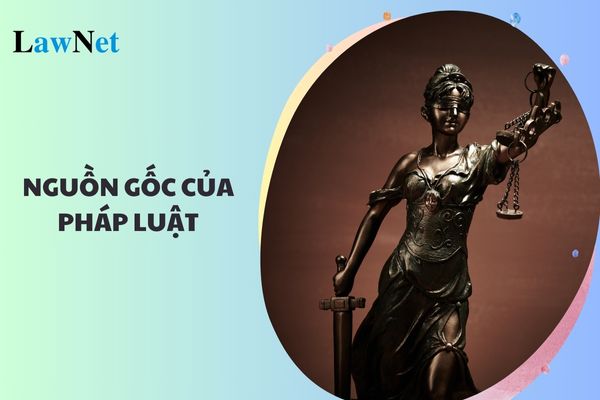What is the origin of law? What policies does the State of Vietnam have for the dissemination and education of law?
What is the origin of law?
Regarding the definition, law is a system of conduct rules issued or recognized and guaranteed by the state, expressing the will of the ruling class in society, and acting as a factor that adjusts social relations.
Currently, there are many viewpoints on the origin of law. According to the Marxist-Leninist view, law is a phenomenon belonging to the social superstructure of class society; it only arises, exists, and develops when society reaches a certain level of development.
In primitive communist society, there was no class division and no class struggle, thus there was no law. To maintain social order, customary and religious norms were formed to adjust the social relations between members, and these norms were voluntarily followed by everyone.
The change in society, reflected in economic and social development (the formation of classes and new social relations), led to the need for a new order which the customary and religious rules could no longer accommodate. Hence, law emerged to adjust social relations and maintain social order.
The origin of law can be understood from two different aspects:
- From an objective perspective: the reasons for the emergence of the State are the same reasons for the emergence of law.
- From a subjective perspective: law is formed through the State by two methods: the State issues and/or recognizes social norms.
Note: The content on the origin of law is for reference only!

What is the origin of law? What policies does the State of Vietnam have for the dissemination and education of law? (Image from the Internet)
What policies does the State of Vietnam have for the dissemination and education of law?
Based on Article 3 of the Law on Dissemination and Education of the Law 2012, the state's policies for disseminating and educating about the law include:
- Dissemination and education of the law are the responsibility of the entire political system, with the State playing a core role.
- The State ensures the necessary resources for the dissemination and education of the law.
- Implement private investment in the work of dissemination and education of the law; reward agencies, organizations, and individuals that actively contribute to the dissemination and education of the law.
- Legal education in educational institutions of the national education system is integrated into the curriculum at various levels and educational stages; it is part of the curriculum in secondary education, higher secondary education, vocational education, and university education.
What does the State of Vietnam manage regarding the dissemination and education of the law?
Based on Article 6 of the Law on Dissemination and Education of the Law 2012, the content of state management over the dissemination and education of the law includes:
- Developing and issuing legal normative documents, programs, and plans for law dissemination and education;
- Directing, guiding, and organizing the implementation of dissemination and education of the law;
- Providing training in legal knowledge and dissemination and education of law;
- Establishing and managing the national legal database;
- Compiling statistics and summarizing law dissemination and education;
- Inspecting, supervising, resolving complaints and denunciations, and handling violations in the dissemination and education of the law;
- International cooperation on law dissemination and education.
Additionally, the state management agencies over law dissemination and education include:
- The Government of Vietnam uniformly manages the state over law dissemination and education;
- The Ministry of Justice is responsible to the Government of Vietnam for state management over law dissemination and education; takes the lead in developing and submitting long-term and medium-term programs and plans on law dissemination and education to the Prime Minister for issuance; takes the lead in establishing a national legal database;
- Ministries and ministerial-level agencies, within the scope of their duties and authority, are responsible for cooperating with the Ministry of Justice in state management over law dissemination and education;
- The People's Committees at all levels are responsible for state management over law dissemination and education at the local level.

